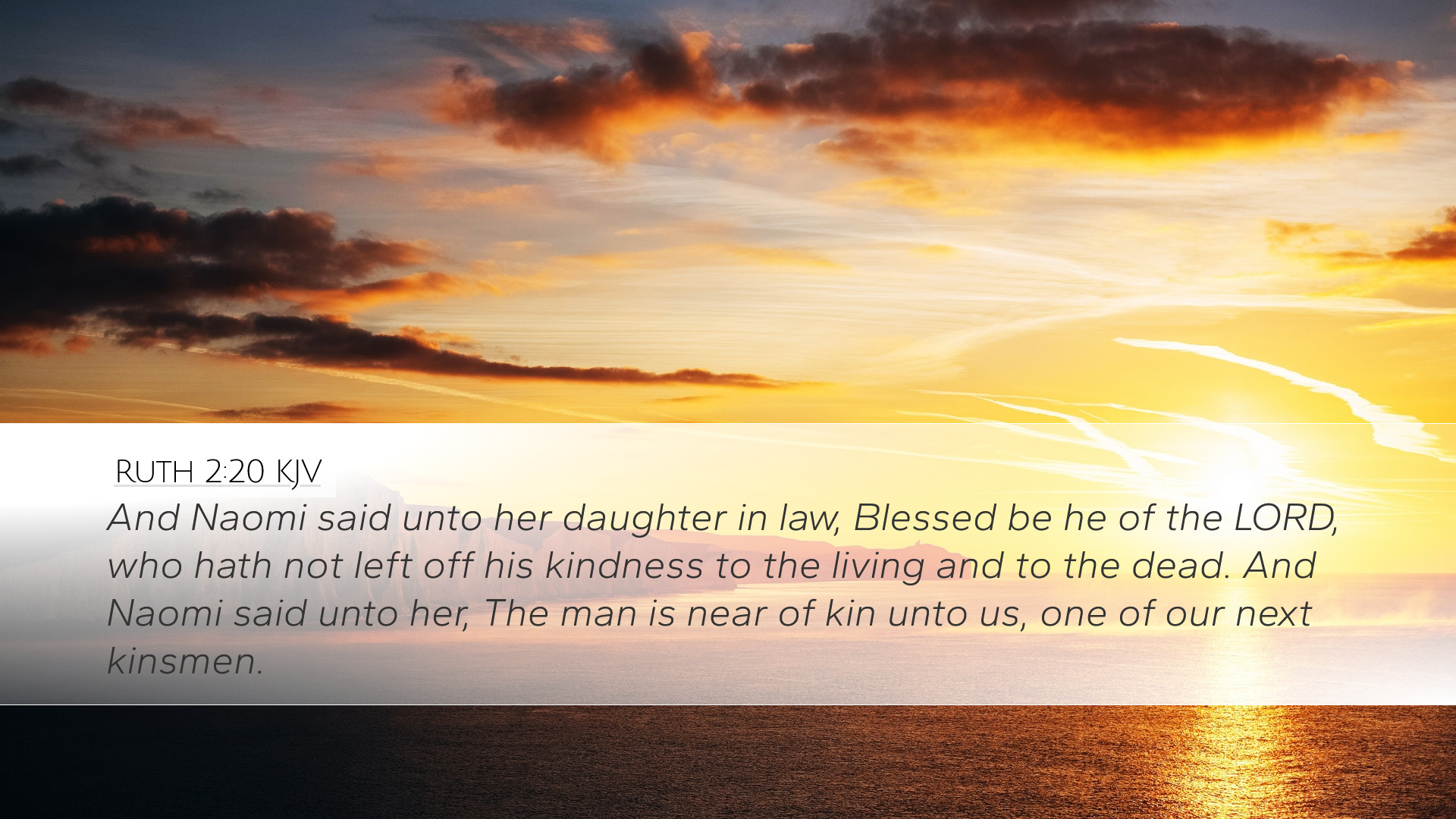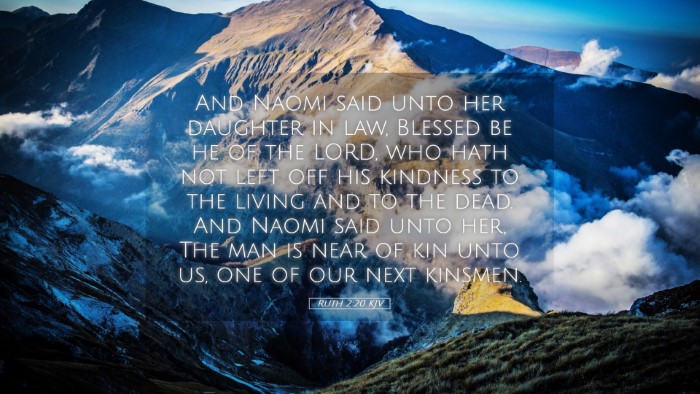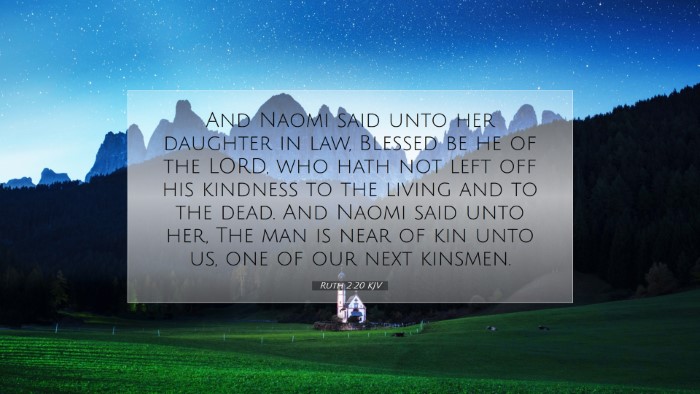Old Testament
Genesis Exodus Leviticus Numbers Deuteronomy Joshua Judges Ruth 1 Samuel 2 Samuel 1 Kings 2 Kings 1 Chronicles 2 Chronicles Ezra Nehemiah Esther Job Psalms Proverbs Ecclesiastes Song of Solomon Isaiah Jeremiah Lamentations Ezekiel Daniel Hosea Joel Amos Obadiah Jonah Micah Nahum Habakkuk Zephaniah Haggai Zechariah MalachiRuth 2:20
Ruth 2:20 KJV
And Naomi said unto her daughter in law, Blessed be he of the LORD, who hath not left off his kindness to the living and to the dead. And Naomi said unto her, The man is near of kin unto us, one of our next kinsmen.
Ruth 2:20 Bible Commentary
Commentary on Ruth 2:20
Ruth 2:20 states: "And Naomi said to her daughter-in-law, ‘Blessed be he of the LORD, who has not forsaken His kindness to the living and the dead!’" This verse serves as a poignant reflection of the themes of loyalty, redemption, and the unchanging nature of God's providence.
Context of the Passage
The Book of Ruth is set in the time of the judges, a period marked by social instability and moral decay in Israel. Naomi and Ruth’s story stands as a remarkable contrast to the surrounding tumult. After the death of her husband and sons, Naomi returns to Bethlehem with her Moabite daughter-in-law, Ruth. Their return symbolizes hope amid despair, which culminates in Ruth's encounter with Boaz, a kinsman redeemer.
Theological Insights
-
Divine Providence:
This passage highlights the overarching theme of God's providence. Naomi attributes blessings from the Lord to Boaz, recognizing his role in their lives amidst their trials. Matthew Henry emphasizes that God’s kindness is evident in both the living and the dead, indicating that His plans encompass all circumstances.
-
Redemption:
Boaz, as a redeemer, signifies a larger theological truth concerning redemption. Adam Clarke notes that this foreshadows Christ, who fulfills the law of redemption for humanity. Naomi’s acknowledgment of Boaz as a blessing from God underscores the significance of familial ties and societal responsibilities in the culture of Israel.
-
Faith and Gratitude:
Naomi’s reaction reveals her faith. Having returned to Bethlehem in bitterness, she comes to appreciate the ways God has not forsaken her family. Albert Barnes points out that Naomi’s gratitude reflects a shift in her understanding of God’s character—no longer just a source of chastisement but also a provider of kindness and blessing.
Key Themes
-
The Nature of God’s Kindness:
The kindness of the Lord referenced in this verse entails both mercy and steadfast love. It serves not only the physical provisions but also the emotional restoration of Naomi and Ruth.
-
Community and Kinship:
The role of community is essential here. Boaz acts from a place of responsibility within his kinship ties, illustrating the importance of communal support during hardship. This highlights the relational aspect of God’s redemptive work through people.
-
Hope Amid Despair:
Naomi’s renewal of hope in God aligns with the overarching narrative of Ruth, which moves from loss to redemption. This transition reflects the biblical promise that God's plans can transform seemingly desperate situations into avenues for blessing.
Application for Today
For pastors, students, theologians, and scholars, this verse encapsulates crucial lessons about the divine attributes and the human experience of faith. It reminds us that:
-
Recognizing God’s Hand:
In our own lives, we are called to acknowledge God’s kindness and involvement, even amidst trials. Naomi’s insight is a model for how faith can reshape our perspectives.
-
The Importance of Community:
In ministry, fostering a sense of community and kinship can be crucial for the support of those facing adversity. Like Ruth and Naomi, we must look to others for assistance and encouragement.
-
Embracing Redemption:
Embracing the concept of redemption equips us to help others experience transformation, reflecting the beauty of grace that is active in our world today.
Conclusion
Ruth 2:20 serves as a powerful testament to the faithfulness of God’s provision. Naomi’s blessing upon Boaz invites us to explore the broader implications of divine kindness that lead to redemption. The reflection and recognition of God’s working in our lives, through community and faith, challenge us as we pursue deeper understanding and spread the message of hope across our congregations and communities.


